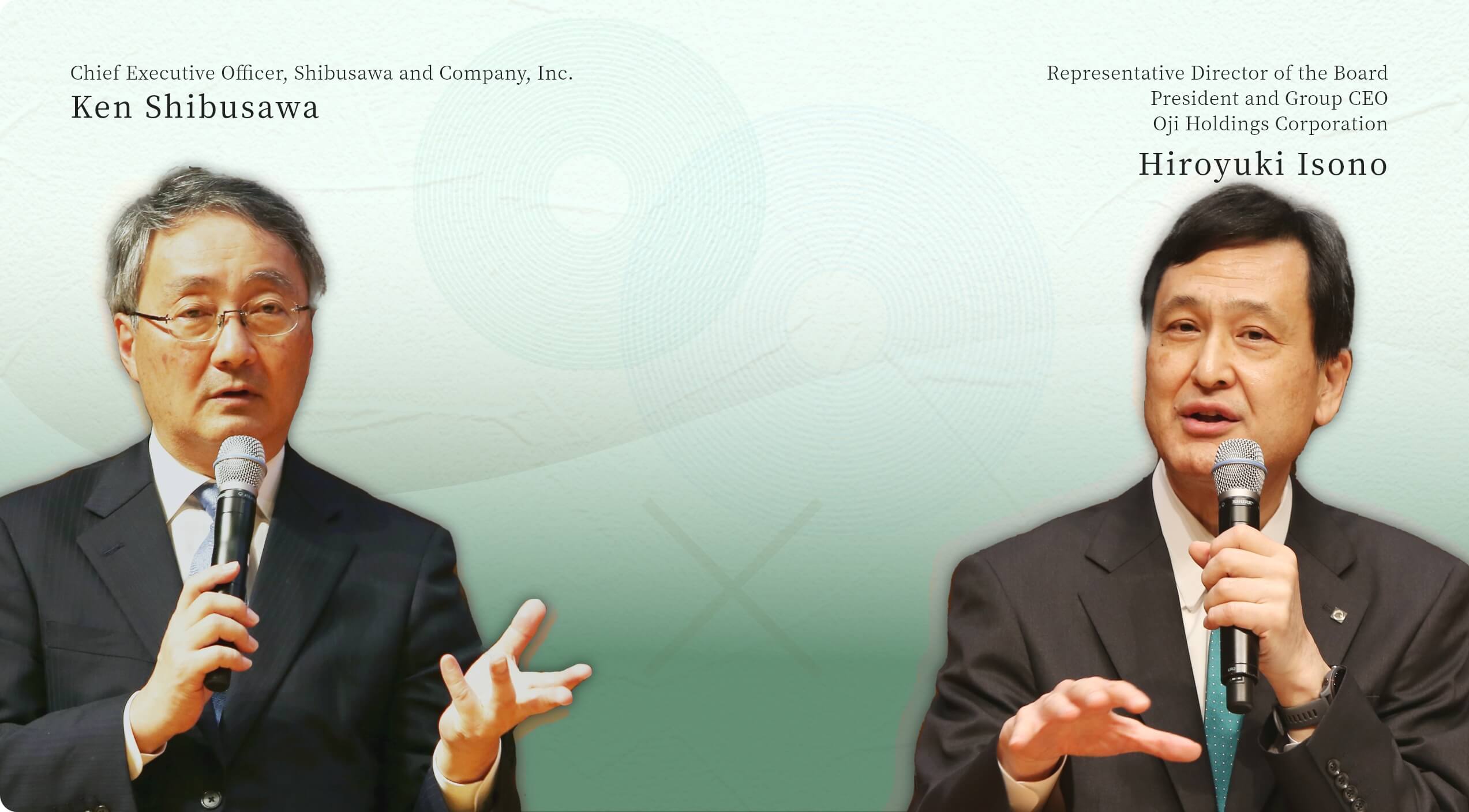
 Special talk
Special talk
to Commemorate 150th Anniversary
Growing Forests,
Utilizing Forest resources
On February 12, 2023, Oji Holdings marked the 150th anniversary of its foundation. What was the powerful intent behind the venerable Eiichi Shibusawa’s proposal for the establishment of Shoshi Kaisha, a paper manufacturing company that was the origin of the Oji Group? What are the Oji Group’s purpose and human capital management for leaping into its next 150 years to meet the needs of society? Joined by facilitator Naomi Trauden , a model and television personality, a special talk took place between Ken Shibusawa, Chief Executive Officer of Shibusawa and Company, Inc. , and Hiroyuki Isono, President and Group CEO of Oji Holdings Corporation, to commemorate the 150th anniversary.
150 years of carrying on the strong intention to “see it through”





Creating social value with corporate conduct based on our Purpose



Human capital management needed for green innovation

(*) Founded in the United Kingdom in 2000, CDP is a non-governmental organization that runs a global information disclosure system for investors, companies, cities, states, and regions to manage their environmental impacts. Its environmental disclosure and evaluation processes are widely recognized as the gold standard of environmental reporting.
URL: https://www.cdp.net/en

Profiles

Ken Shibusawa was born in 1961 in Kanagawa Prefecture and is a graduate of the Department of Chemical Engineering at the University of Texas. In 2001, he founded Shibusawa and Company, Inc., where he serves as CEO. He also founded Commons, Inc. in 2007, changing its name to Common Asset Management, Inc. and becoming its Chairman in 2008.
Hiroyuki Isono was born in 1960 in Tokyo and graduated from Keio University’s Faculty of Economics in 1984. He obtained his MBA from Canada’s McGill University in 1991. Joining Oji Paper (now Oji Holdings) in 1984, he has served as a Group Corporate Officer and chairman of a Group company in Oceania, among other posts, before assuming his current position in April 2022.
Naomi Trauden debuted as an exclusive model for fashion magazine, CanCam, and holds the record as the magazine’s longest-serving exclusive model. In addition to walking the catwalk at the Tokyo Girls Collection and GirlsAward fashion events, she also started appearing on news and information programs while still a university student. Named by Forbes as one of Japan 30 Under 30 in 2021, she is an active commentator on environmental issues and the SDGs.

